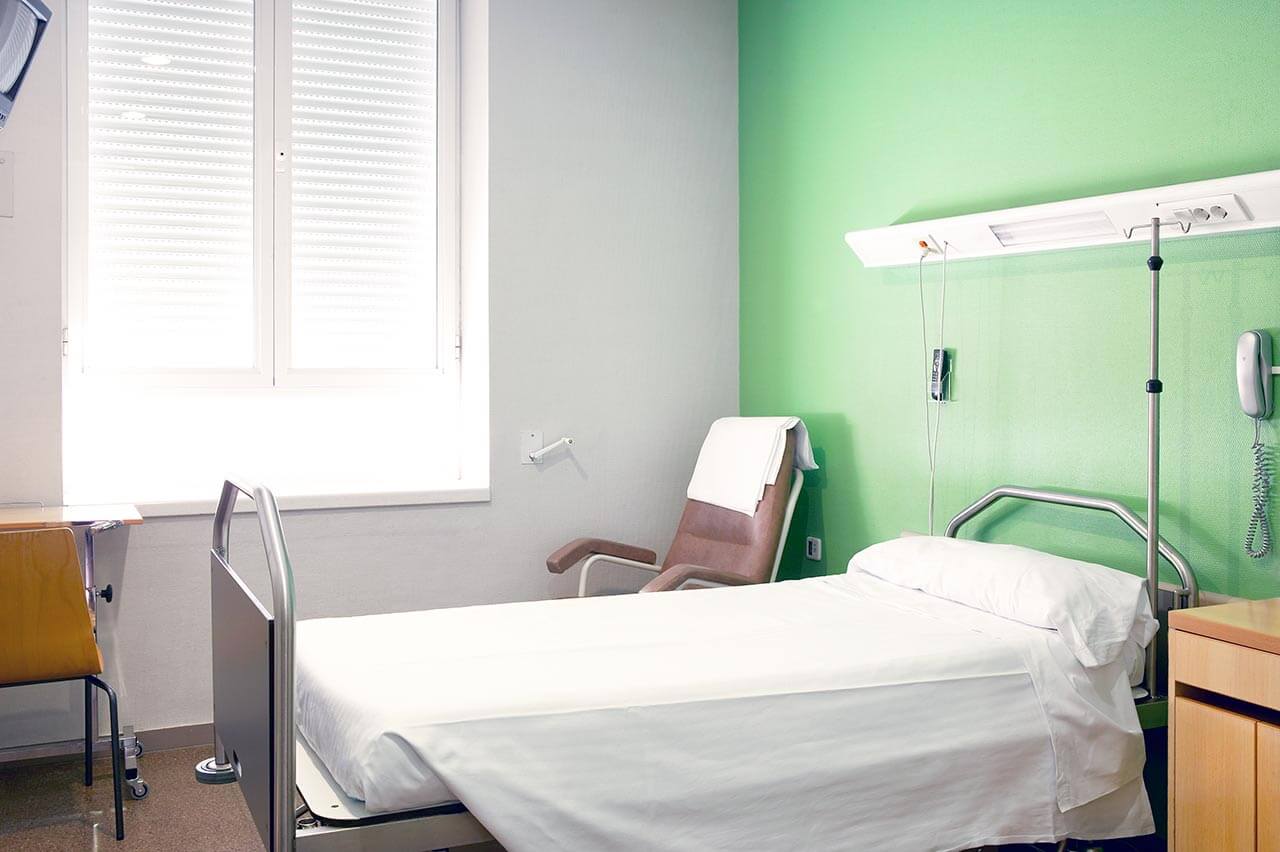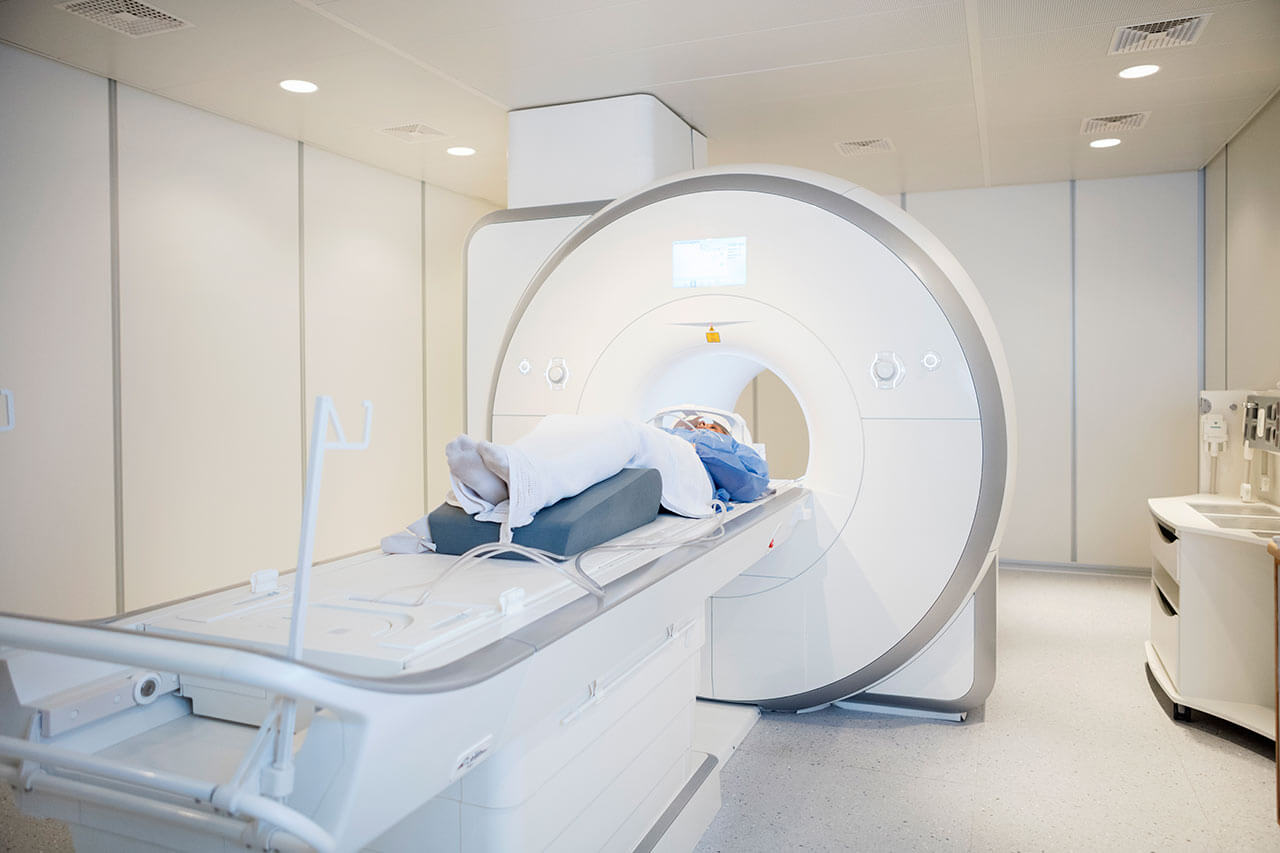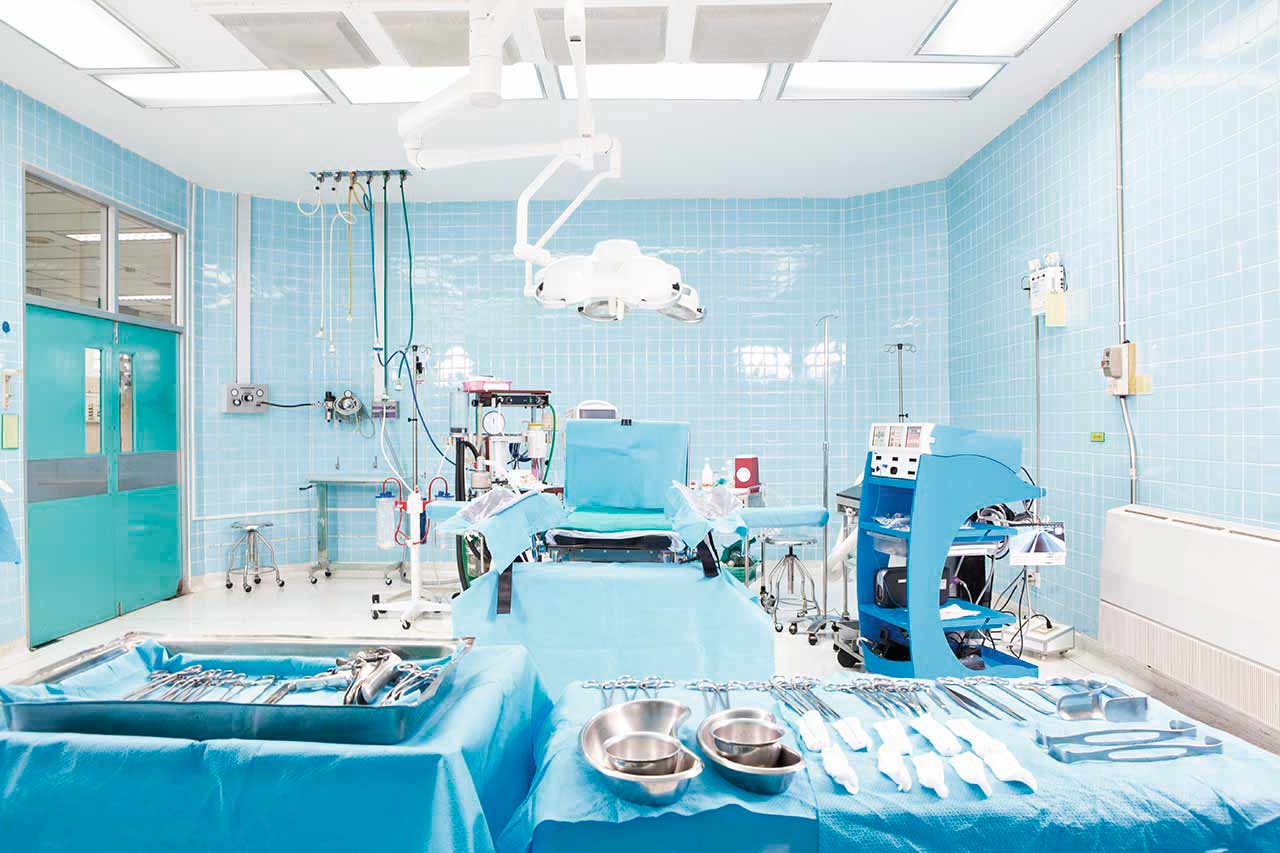
About the Department of Adult and Pediatric Neurosurgery, Spinal Surgery at University Hospital of Ludwig Maximilian University of Munich
The Department of Adult and Pediatric Neurosurgery, Spinal Surgery at the University Hospital of Ludwig Maximilian University of Munich offers the full range of diagnostic examinations and surgical treatment of diseases of the central and peripheral nervous systems. The team of the department's neurosurgeons successfully performs operations for pathologies of the brain and spinal cord, spine, neurovascular pathologies, pituitary diseases, and epilepsy. The doctors specialize in surgery for malignant brain tumors. The department is part of the Gliome Competence Center Network and the German Cancer Aid. The department uses the latest minimally invasive microsurgical techniques, navigation systems, intraoperative systems, and other advanced technical resources that allow for an optimal therapy result. The department has 84 beds for its patients, 10 of which are intended for intensive care. Medical care is based on an individual approach with due consideration of the patient's specific clinical data and needs. The specialists working at the medical facility always devote enough time to personal communication with their patients and do everything possible so that they receive effective treatment and maintain a decent quality of life. The Head Physician of the department is Prof. Dr. med. Christian Schichor.
The department effectively treats benign and malignant brain tumors. The department has the status of a certified Neuro-Oncology Center of the German Cancer Society (DKG), which is part of the Comprehensive Cancer Center Munich. The specialists most often deal with such types of tumors as gliomas, meningiomas, neuroblastomas, hemangioblastomas, and brain lymphomas. Neurosurgeons also have vast experience in treating brain metastases caused by other malignant tumors, such as lung or breast cancer.
If a brain tumor is suspected, the diagnostic protocol includes a mandatory head magnetic resonance imaging (MRI). In some cases, positron emission tomography (PET) can also be performed. A stereotactic biopsy can be performed for a follow-up histological examination of the material obtained and the establishment of a final diagnosis. A treatment regimen is developed for each patient individually at weekly tumor boards, in which doctors from related medical specialties also participate. When choosing the optimal therapeutic methods, doctors take into account the type of brain tumor, its location, growth rate, clinical symptoms, and a patient's general health condition. In almost all cases of brain cancer, patients require a tumor resection surgery if the clinical case allows for this type of treatment (some tumors in hard-to-reach places cannot be surgically resected). The department's neurosurgeons work in well-equipped operating rooms with the possibility to use advanced surgical microscopes, neuronavigation, intraoperative neuromonitoring, intraoperative imaging using fluorescence methods (ALA and ICG), intraoperative CT scans, and other technical resources, which ensure the most effective and safe surgical treatment at the same time. The department is also one of the few in Germany offering such innovative brain cancer treatment methods as interstitial brachytherapy (stereotactic treatment) and photodynamic therapy (experimental treatment). When treating brain cancer, conservative methods such as chemotherapy, radiation therapy, symptomatic treatment, maintenance therapy, and others are widely used.
The department's neurosurgeons have been successfully performing surgical treatment for epilepsy in a highly specialized center for many years. The patients with this pathology are managed in close cooperation with neurologists, including pediatric neurologists, specialists in nuclear medicine, neuroradiology, and psychiatry. In most cases, patients with epilepsy are treated effectively with drug therapy, and surgery is not required. Nonetheless, there are cases when surgery is the only way to provide a patient with a decent quality of life. The operation is preceded by comprehensive diagnostics to assess the advisability of its performance. A diagnostic protocol may include such tests as electroencephalographic monitoring during and between epileptic seizures, seizure semiology assessment, invasive EEG monitoring, tractography, MRI scans, including functional ones, 18F-FDG PET/CT scans, SPECT, and others. The upcoming epilepsy surgery is 3D planned based on the diagnostic data obtained. The essence of the operation is to remove or isolate a part of the brain in which electrical activity is disturbed. For patients with bilateral or multifocal epilepsy, classical surgery is contraindicated, and therefore they undergo vagus nerve electrical stimulation. A thalamic stimulator implantation surgery may be performed as an alternative treatment. The success rate of epilepsy surgery in the medical facility reaches 80%, which is one of the best rates in all of Europe.
The department also provides top-class surgical services for patients with spinal diseases. Degenerative compression syndromes of the nerve roots and spinal cord caused by spinal disc herniation, spinal stenosis, and segmental instability (slipped vertebrae or spondylolisthesis) are the most common in the clinical practice of neurosurgeons. Other common pathologies are chronic back pain, spinal fractures, spine and spinal cord tumors, and spinal dysraphia. The department's team of specialists perform sparing microsurgical and minimally invasive interventions, stabilizing surgery, intervertebral disc replacement surgery, and CT-guided blocks. During spinal surgery, advanced neuronavigation and intraoperative monitoring systems are used, thanks to which patients receive highly effective and maximally safe treatment.
An important place in the department's clinical activities is given to treating children with brain and spinal cord tumors, cleft skull base and spina bifida, epilepsy, hydrocephalus, traumatic brain injuries, spinal injuries, arachnoid cysts, vascular malformations, spasticity, and other pathologies. When performing operations on children, the department's neurosurgeons also use the latest technologies, including surgical microscopes, neuronavigation, neuromonitoring, and endoscopic equipment.
The department's range of medical services includes the following:
- Surgical treatment of tumors of the brain and spinal cord, meninges and peripheral nerves in adults and children
- Brain and spinal cord tumors (all types of gliomas, glioblastomas, and pilocytic astrocytomas)
- Brain and spinal cord metastases due to various cancers
- Epineural tumors (neurinomas/schwannomas)
- Tumors of the brain and spinal cord meninges (meningiomas)
- Microsurgical tumor resection with the fluorescent dye 5-ALA
- Resection with modern methods of intraoperative neuronavigation and with various imaging techniques
- Stereotactic brachytherapy with the implantation of radioactive iodine-125 seeds (for gliomas and metastases)
- Photodynamic therapy with stereotactic methods for malignant glioma recurrences
- Stereotactic treatment of brain tumors in children
- Stereotactic cyst puncture, especially in the case of cystic craniopharyngiomas, with the implantation of "internal shunts"
- Stereotactic-guided ventriculocisternostomy in the case of hydrocephalus caused by tumors
- Skull base surgery
- Acoustic neuromas
- Meningiomas
- Chordomas
- Epidermoid cysts
- Minimally invasive surgery
- Classic open surgery
- Surgical treatment of neurovascular diseases
- Aneurysms
- Dural arteriovenous fistulas
- Arteriovenous malformations
- Cavernomas
- Bleeding in the brain
- Stroke
- Endovascular procedures
- Surgical treatment
- Radiosurgical techniques
- Spinal surgery
- Degenerative compression syndromes of the nerve roots and spinal cord caused by spinal disc herniation, spinal stenosis, and segmental instability (slipped vertebrae or spondylolisthesis)
- Chronic pain in the neck and back, and facet syndrome
- Traumatic spinal injuries (fractures)
- Spine and spinal cord tumors
- Spinal dystrophic syndromes and malformations
- Microsurgical minimally invasive decompression surgery (for example, interlaminar fenestration, foraminotomy, and crossed laminectomy)
- Stabilizing interventions on all segments of the spine using neuronavigation and intraoperative computed tomography
- Facet joint block and facet joint cryotherapy under CT guidance
- Removal of tumors of the vertebral bodies, spinal canal and spinal cord using intraoperative electrophysiological monitoring of nerve ending functions
- Intervertebral disc replacement surgery
- Surgical treatment of spinal cord tumors
- Neuromas
- Meningiomas
- Ependymomas
- Astrocytomas
- Hemilaminectomy (small lateral tumors)
- Laminectomy (small medial tumors)
- Laminoplasty
- Functional neurosurgery
- Uncontrolled pain syndromes
- Movement disorders
- Spasticity
- Ablative techniques
- Intrathecal administration of drugs using a catheter or a special pump
- Therapeutic electrical stimulation of the central nervous structures
- Microsurgical vascular decompression in the case of paroxysmal extreme pain disorder
- Deep brain stimulation (for tremor, dystonia, and Parkinson's disease)
- Surgical treatment of epilepsy
- Partial resection of the anterior part of the temporal lobe
- Cerebral cortex electrical stimulation
- Vagus nerve electrical stimulation
- Thalamic stimulator implantation surgery
- Surgical treatment of diseases of the nervous system in children
- Brain and spinal cord tumors
- Spina bifida and cleft skull base
- Epilepsy
- Hydrocephalus
- Vascular malformations
- Craniosynostosis
- Spasticity (for example, dystonia)
- Traumatic brain injuries and spinal fractures
- Arachnoid cysts
- Arnold-Chiari malformation
- Microsurgical interventions
- Minimally invasive interventions, including operations with neuronavigation and neuromonitoring
- Endoscopic interventions
- Surgical treatment of pituitary tumors
- Pituitary adenoma
- Craniopharyngioma
- Rare pituitary tumors
- Microsurgical interventions
- Endoscopic interventions
- Stereotactic irradiation with the CyberKnife system (in rare cases)
- Surgical treatment of peripheral nerve diseases
- Carpal tunnel syndrome
- Cubital tunnel syndrome
- Radial tunnel syndrome
- Scalene myofascial pain syndrome
- Meralgia paresthetica
- Tarsal tunnel syndrome
- Microsurgical operations
- Surgical treatment of other diseases of the central and peripheral nervous systems
Curriculum vitae
Higher Education and Postgraduate Training
- 1988 - 1990 Medical studies, University of Regensburg.
- 1990 - 1995 Medical studies and state exam, University of Wuerzburg.
- 01.2003 Thesis defense, Ludwig Maximilian University of Munich.
- 01.2013 Habilitation and PD, Ludwig Maximilian University of Munich.
- 2014 - 2016 Master of Health Business Administration (MHBA), Health Economics, Friedrich-Alexander University of Erlangen-Nuremberg.
- 02.2019 Extraordinary Professorship, Ludwig Maximilian University of Munich.
Professional Career
- 04.2007 - 04.2009 Senior Physician, Department of Adult and Pediatric Neurosurgery, Spinal Surgery at the University Hospital of Ludwig Maximilian University of Munich.
- Since 05.2009 Deputy Head and Managing Senior Physician, Department of Adult and Pediatric Neurosurgery, Spinal Surgery at the University Hospital of Ludwig Maximilian University of Munich.
- Acting Head of the Department of Adult and Pediatric Neurosurgery, Spinal Surgery at the University Hospital of Ludwig Maximilian University of Munich.
Clinical Interests
- Treatment of cerebrovascular diseases.
- Treatment of skull base tumors.
- Treatment of orbital tumors.
Photo of the doctor: (c) LMU Klinikum



